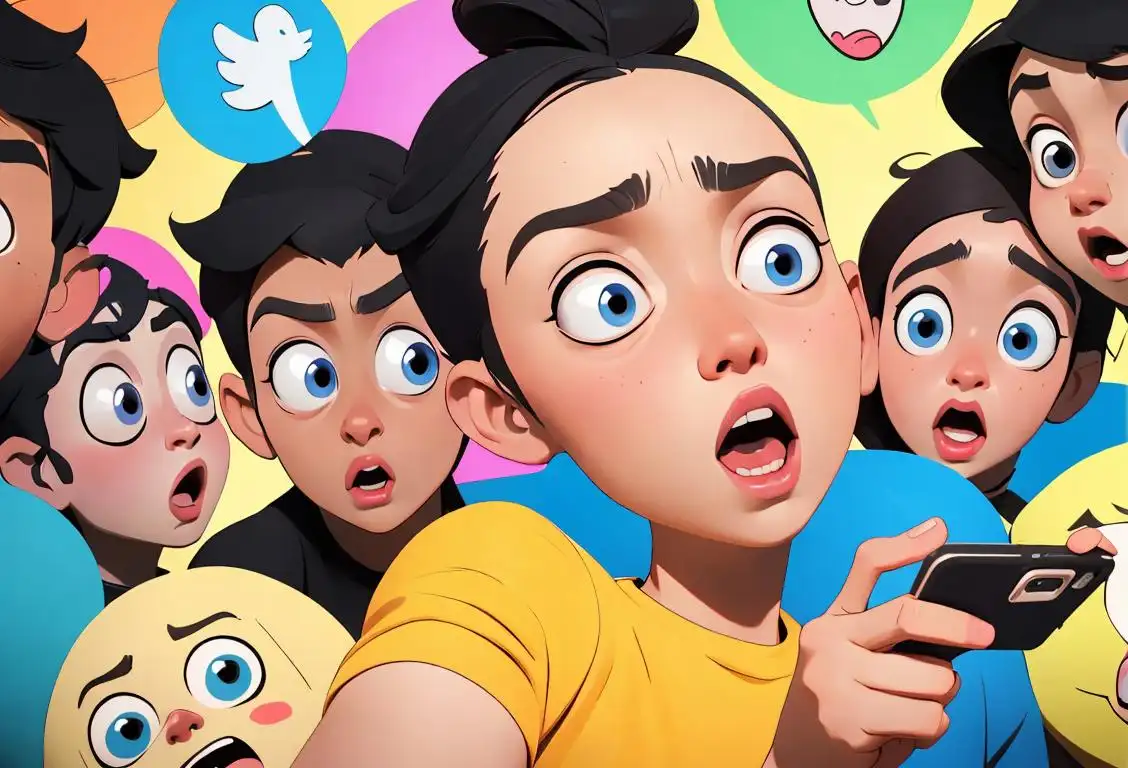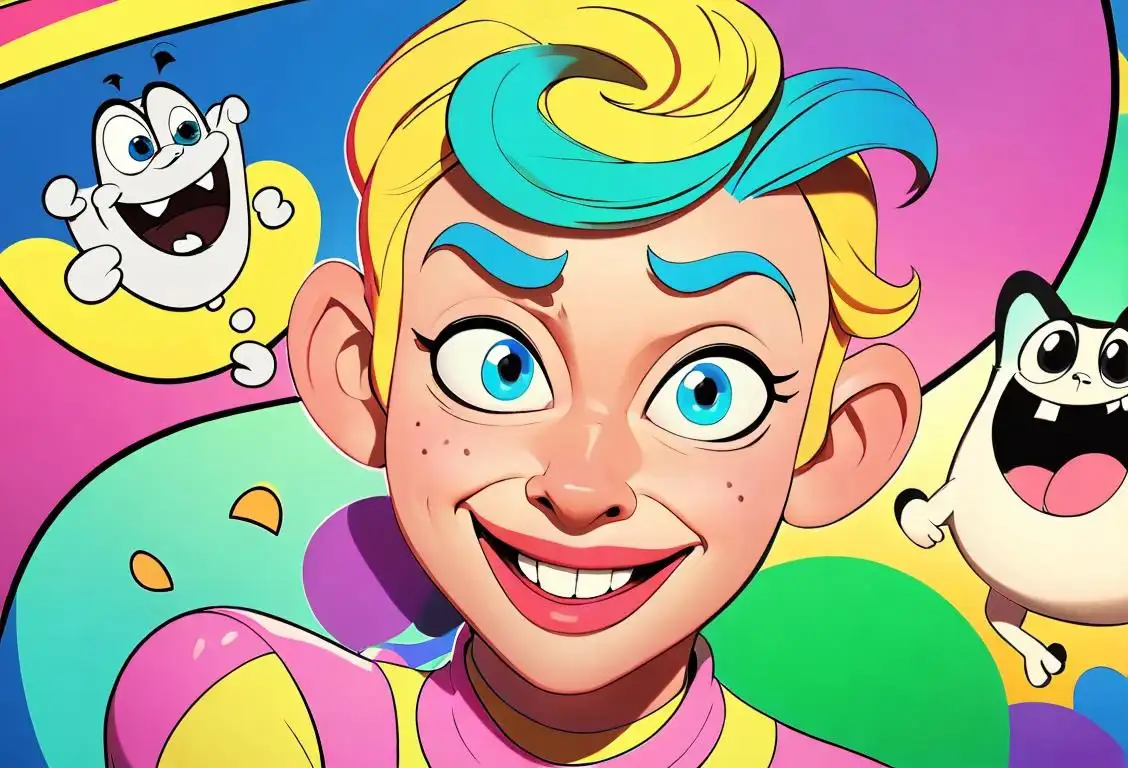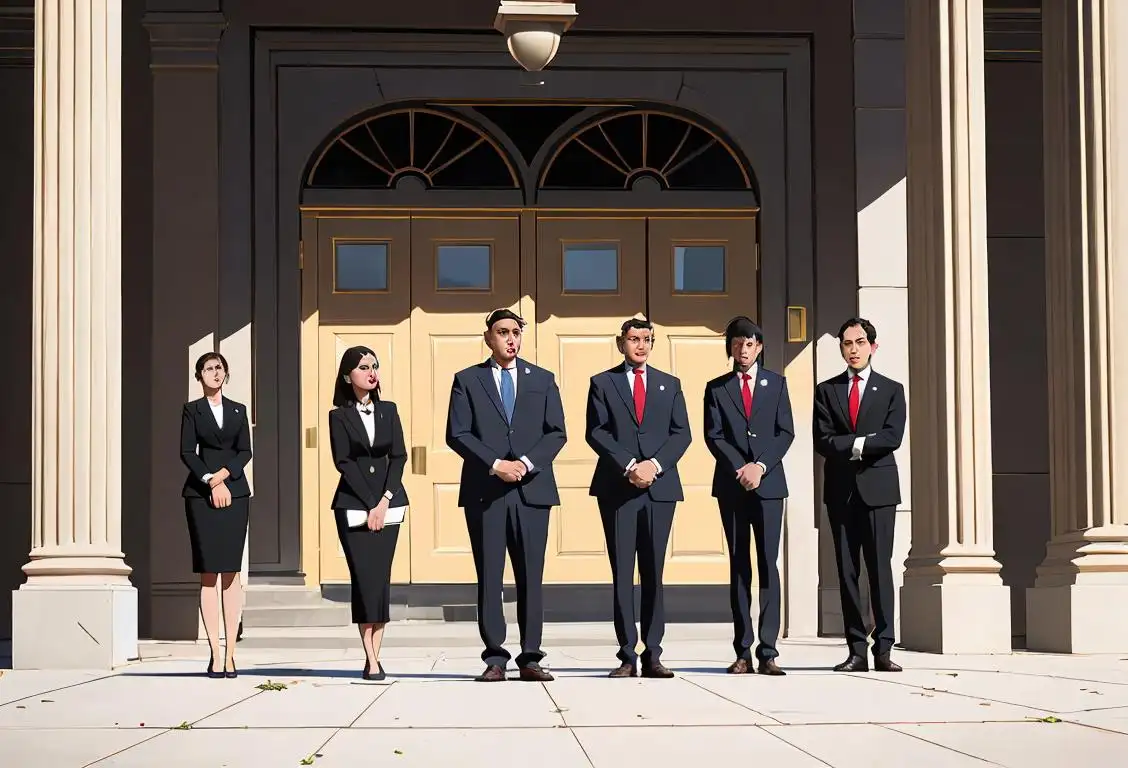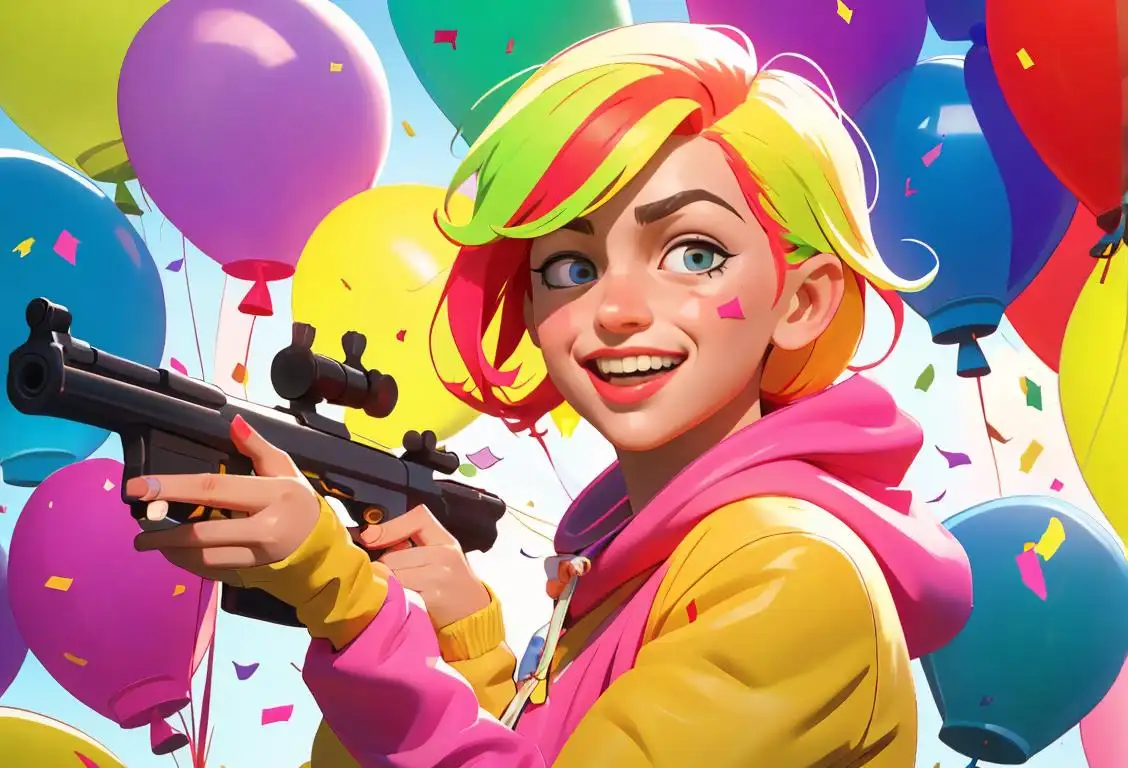National Maymay Day
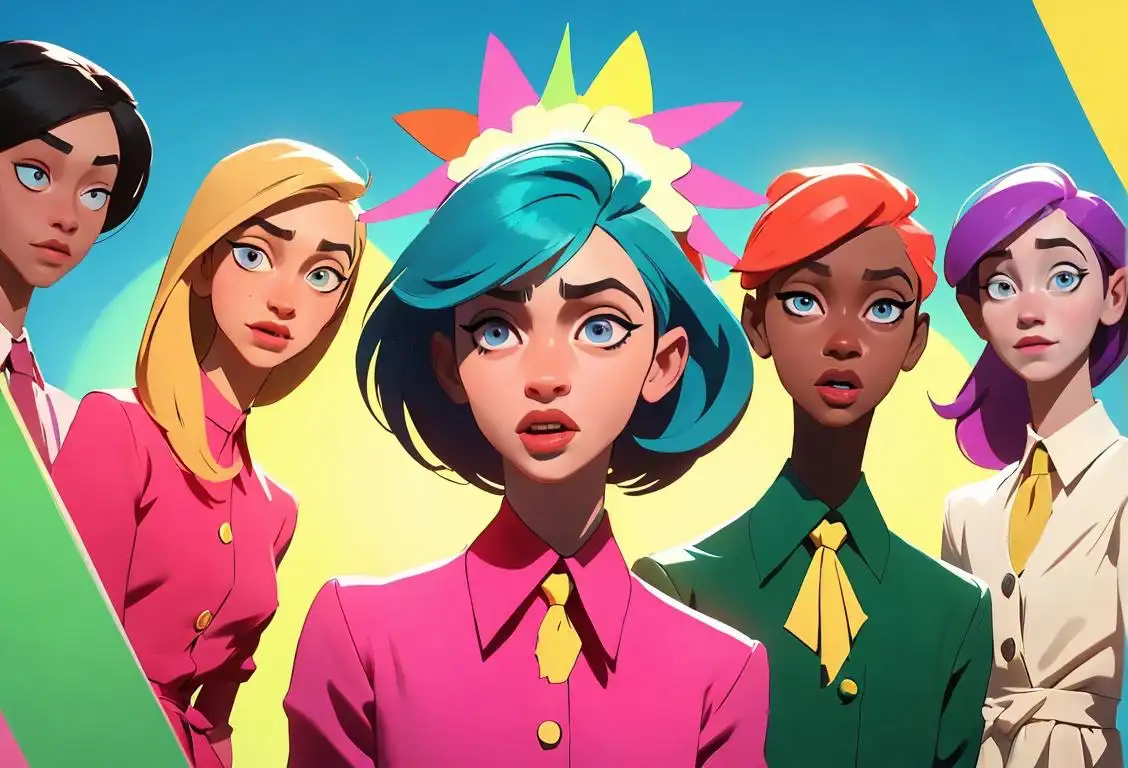
Welcome to the wacky world of National Maymay Day! Get ready to dive into the hilarious and sometimes downright bizarre history of internet memes. From grumpy cats to dancing babies, this day celebrates the humor and creativity that the internet has brought us. So sit back, relax, and get ready to laugh your way through the origins of this delightful day.
When is Maymay Day?
It's national maymay day on the 7th November.
The Birth of Memes
We all know that the internet is a treasure trove of funny and weird things. But did you know that the term 'meme' actually dates back to 1976? The word was coined by Richard Dawkins, an evolutionary biologist, in his book 'The Selfish Gene.' Dawkins used the term to describe a unit of cultural information that spreads from person to person through imitation.
Fast forward to the dawn of the internet, and memes began to take on a life of their own. From the early days of message boards to the explosion of social media platforms, the internet became a breeding ground for viral content. Memes started as simple images with clever captions, but they evolved to include videos, GIFs, and even entire internet trends.
The Power of Memes
What makes memes so powerful is their ability to connect people through humor. They have become a universal language that transcends borders and cultural differences. Whether you're laughing at the same funny cat video as someone on the other side of the world, or sharing a relatable meme about your daily struggles, memes have a way of bringing us closer together.
But it's not all just fun and games. Memes have also played a significant role in shaping internet culture and even influencing real-world events. Remember the 'Distracted Boyfriend' meme? It became a symbol for infidelity and was even used in political campaigns. From the meteoric rise of the 'Harlem Shake' to the viral sensation of the 'Ice Bucket Challenge,' memes have become a force to be reckoned with.
Celebrating National Maymay Day
On National Maymay Day, we honor the internet's most iconic and beloved memes. It's a day to laugh at the silly things that bring us joy and to appreciate the unique and quirky online culture that memes have created.
So go ahead, share your favorite memes, create your own, or just spend the day scrolling through a never-ending feed of internet hilarity. Just remember to spread the laughter, not the trolls!
History behind the term 'Maymay'
2007
The Birth of an Internet Meme
In the year 2007, the term 'maymay' first emerged as an Internet meme. Originating on the online image board site 4chan, 'maymay' was a phonetic spelling of 'meme,' which referred to humorous or viral content that spread rapidly across the internet. 4chan users adopted 'maymay' as a playful alteration of the word, adding a touch of absurdity and creating a unique term that quickly gained popularity.
2007
The Birth of the Term
In the year 2007, the term 'maymay' was born within the depths of internet culture. Originating from a misspelling and pronunciation of the word 'meme,' 'maymay' quickly gained popularity as an alternate way to refer to internet memes.
2000
The Birth of Maymay
In the year 2000, the term 'maymay' was coined on the internet. It originated from a misspelling of the word 'meme,' which refers to humorous internet content that spreads rapidly. This misspelling gained popularity and started to be used intentionally to refer to memes, giving birth to the term 'maymay'.
2003
Origin of the term 'maymay'
In the year 2003, the term 'maymay' emerged as a slang term in internet communities. Its exact origins are unclear, but it's believed to have originated from the online forum Something Awful. Initially, it was used to describe random and nonsensical images, typically by repeating the word 'may' twice, hence forming the term 'maymay.' The term gained popularity and started spreading across various internet platforms.
2005
Origin of the term 'maymay'
The term 'maymay' originated in 2005 on the internet as a misspelling of the word 'meme'. It first appeared on the imageboard website 4chan, where users often shared and discussed internet memes. The misspelling quickly gained popularity and became a recognizable part of online culture.
2008
The Birth of a Meme
In the year 2008, the term 'maymay' was first coined on the internet. Originally, it was a misspelling and mispronunciation of the word 'meme', which refers to an idea, behavior, or style that spreads rapidly within a culture. The term 'maymay' started gaining popularity on internet forums and imageboards.
2006
The Birth of LOLCats
In 2006, the internet experienced a phenomenon that would pave the way for the term 'maymay.' 'LOLCats,' a term combining 'laugh out loud' and 'cats,' emerged as a cultural trend. People started sharing amusing pictures of cats with captions written in broken English and intentional misspellings. This was the birth of the internet's love affair with humorous images paired with clever text.
2001
Origins of Internet Memes
In the early 2000s, internet memes started gaining popularity, which refers to humorous or entertaining content spread virally on the internet. Memes often involve images, videos, or phrases that are shared and modified by online communities, creating a cultural phenomenon of shared humor and relatability.
2003
Origin of the term 'maymay'
The term 'maymay' first emerged in 2003 as a slang word on a message board called Something Awful. It was created by user Kayden Kross as a playful alteration of the word 'meme.' Although initially used humorously, the term quickly gained popularity and spread throughout various online communities.
2012
Rise to Online Fame
By 2012, 'maymay' had become a well-known internet slang term, primarily used in online communities. It started to gain significant traction and recognition on various social media platforms, discussion forums, and imageboards. The term became synonymous with humorous and viral content that spread rapidly across the internet.
2011
Spread to Other Online Communities
By 2011, 'maymay' had transcended its origins on 4chan and began to spread to other online communities. The term gained traction on social media platforms like Reddit and Tumblr, where users embraced the quirky term as a way to describe and share funny internet content. Its distinctive phonetic sound made it stand out and contributed to its widespread adoption within these communities.
2003
The Birth of 'Maymay'
In 2003, a user on the Something Awful internet forum misspelled the word 'meme' as 'maymay' while discussing internet memes. This accidental misspelling quickly caught on and became a humorous term within the online community. The term 'maymay' started being used as a playful variation of 'meme,' often with a sense of irony or silliness.
2011
The Birth of the Term 'Meme'
In 2011, the term 'meme' started gaining popularity beyond the realm of internet humor. Originally coined by Richard Dawkins in his 1976 book 'The Selfish Gene,' memes referred to cultural ideas that transmit from person to person, imitating the process of genetic evolution. However, in 2011, with the rise of internet culture, the term 'meme' evolved to describe the humorous images and viral content shared online. This broadening of the term laid the groundwork for the emergence of 'maymay.'
2007
4chan's influence
In 2007, the imageboard 4chan played a significant role in the popularization and evolution of 'maymay.' Users on 4chan's board /b/ started using the term to refer to image macros and viral content. This usage further established 'maymay' as a distinct term for internet memes, distinguishing it from its original counterpart, 'meme.' 'Maymay' became deeply intertwined in online culture, especially within anonymous imageboard communities.
2003
4chan and Maymays
By 2003, maymays, now commonly known as memes, found a home on the imageboard website 4chan. 4chan provided an accessible platform for users to share and create maymays, contributing to their rapid spread and cultural impact. The term 'maymay' became prevalent within the 4chan community and further popularized the concept of internet memes.
2007
Spread of 'maymay' on 4chan
In 2007, 'maymay' started to spread beyond 4chan and became more widely used within the internet community. It was often used humorously to refer to memes or to mock the misspelling itself. The term's humorous connotation further contributed to its popularity and its inclusion in online conversations.
2010
4chan and the Rise of 'Maymays'
By 2010, the term 'maymay' became closely associated with 4chan, an infamous imageboard known for its vast array of internet jokes and memes. Memes, or 'maymays', began to thrive on this platform, spawning countless viral images, videos, and catchphrases that spread throughout the internet.
2007
Adoption and transformation on 4chan
By the year 2007, 'maymay' had found its way to the notorious imageboard website, 4chan. The site's users embraced the term and began using it to refer to internet memes, both images, and videos. The term underwent a slight transformation in spelling and pronunciation, becoming 'meme.' This change allowed for easier recognition and understanding of the term, solidifying its place in internet culture.
2012
Mainstream Recognition
In 2012, 'maymays' gained wider recognition as internet culture started to seep into mainstream media. Popular websites and social media platforms embraced the term, and individuals from diverse backgrounds began creating and sharing their own 'maymays'. 'Maymays' became a form of online expression, allowing people to convey humor, sarcasm, or commentary on various topics.
2012
Mainstream acknowledgment and rapid spread
In 2012, the term 'meme' achieved mainstream recognition and started rapidly spreading across the internet. Social media platforms, such as Facebook and Twitter, witnessed a surge in meme-related content. Memes became a new form of communication and expression, allowing individuals to share humor, satire, and commentary on a wide range of topics. Brands and celebrities also began incorporating memes into their marketing strategies to engage with online communities.
2010
'Maymay' goes mainstream
By 2010, 'maymay' had gained enough traction to be recognized by mainstream websites and communities. It began appearing in online forums, social media platforms, and even news articles. The term's misspelling became firmly established as an intentional alteration of the word 'meme', and it continued to be used in both a sincere and ironic manner.
2015
Mainstream Recognition
In 2015, 'maymay' entered mainstream recognition when it was featured in popular media outlets and referenced in online content. The term became more widely understood and started appearing in news articles, TV shows, and even advertisements. Despite its roots in internet culture, 'maymay' had successfully made its way into broader popular culture.
2012
Rise of Image Macros
Around 2012, image macros became a popular form of memes. Image macros are pictures or photographs overlaid with humorous text, often in bold white font, capturing a relatable situation or conveying a joke. 'Maymay' was occasionally used in the context of creating or sharing image macros, adding to its significance within the meme culture.
2013
Recognition and Popularity
In 2013, 'maymay' achieved a significant level of recognition and popularity. It became synonymous with internet memes and an integral part of the internet culture. The term even gained attention outside of online communities, with media outlets and mainstream internet users referencing 'maymay' when discussing viral content. This recognition solidified 'maymay' as a term with cultural significance, representing the humorous and shareable nature of internet content.
2012
The Rise of 'Maymay'
In 2012, a playfully misspelled variant of the word 'meme' started gaining popularity within online communities. 'Maymay' became an intentional misspelling of 'meme' and represented a lighthearted and humorous twist on the term. This playful alteration added an extra layer of fun to the concept and quickly spread across social media platforms.
2005
Emergence of Maymay Culture
In 2005, internet culture embraced the term 'maymay,' and it became deeply embedded in online communities. The popularity of maymays grew exponentially, and they started to encompass a wide range of formats, including images, videos, and text. The term 'maymay' became synonymous with internet humor and creative expression.
2009
The rise of 'maymay'
By 2009, 'maymay' had become a widespread term in online vernacular. It gained recognition outside of imageboard communities and started appearing in popular social media platforms like Twitter and Facebook. The term's humorous and self-referential nature contributed to its appeal, making 'maymay' an integral part of internet culture.
2015
Internet Slang Evolution
As internet slang and meme culture continued to evolve, the term 'maymay' gained recognition as a deliberate and humorous misspelling of 'meme.' Online communities embraced 'maymay' as a playful and nostalgic nod to the early days of the internet and meme culture, showcasing the organic growth and creativity inherent in online communication.
2016
Memes as a Cultural Phenomenon
By 2016, 'maymays' had firmly established their place in popular culture. Memes became an integral part of online communication, with individuals using them to engage, entertain, and make social commentary. From political 'maymays' to silly cat pictures, these internet-born creations entertained millions and served as a reflection of contemporary society.
2018
Incorporation into everyday language
By 2018, memes had become an integral part of everyday language and communication. The term 'meme' transcended its original meaning and became synonymous with any cultural or social phenomenon that rapidly spreads and evolves within online communities. It found its place not only on the internet but also in conversations offline. The Oxford English Dictionary even officially recognized 'meme' as a word in 2018, cementing its cultural significance.
2012
Inclusion in popular culture
In 2012, 'maymay' made its mark on popular culture. The term was referenced in various television shows, movies, and even music. Its recognition extended beyond the online realm and into everyday conversations. 'Maymay' became a symbol of internet culture and served as a shorthand way for people to refer to and discuss memes, both online and offline.
2020
Continued Evolution
As time went on, the definition of 'maymay' broadened to encompass not only internet memes but also any form of culturally relevant and highly shareable content. This evolution allowed the term to remain relevant and adaptable to the ever-changing landscape of online culture. Today, 'maymay' continues to be a popular term for referring to viral and humorous content found across the internet.
Present
The Ongoing Legacy
Today, 'maymay' continues to be used online, particularly among those who appreciate the playful spelling and the internet's love for inside jokes and wordplay. It serves as a reminder of the creative nature of internet culture and how humor can evolve and take on new forms. 'Maymay' represents our ability to find joy in interconnecting digital spaces and create shared experiences through linguistic playfulness.
Present
Continued Usage and Evolution
Today, 'maymay' remains a commonly used term to refer to internet memes, although it is more prevalent within certain online communities. Its unique spelling and pronunciation have become part of the appeal, creating a distinct subculture connected to the world of viral content. As the internet landscape continues to evolve, so does the usage and interpretation of 'maymay,' demonstrating the ongoing influence and impact of internet memes on popular culture.
2012
Mainstream Recognition
By 2012, the term 'maymay' had permeated mainstream culture. Major news outlets, social media platforms, and even politicians began referencing and sharing maymays. The accessibility and relatability of maymays contributed to their widespread appeal. Their ability to convey complex ideas in a concise and humorous manner made them a powerful tool for commentary and cultural critique.
2012
Mainstream recognition and viral phenomenon
In 2012, 'maymays' (also spelled 'memes') achieved mainstream recognition and became a global phenomenon. The popularization of platforms like Reddit, Tumblr, and Instagram enabled the rapid dissemination of 'maymays' to a wider audience. Internet users from all demographics embraced the term, contributing to the growth and diversification of 'maymay' content.
Present
Maymay in Current Usage
Today, 'maymay' still exists as a lighthearted term occasionally used within internet communities to refer to memes, often in a self-aware and ironic manner. It serves as a reminder of the ever-changing nature of internet culture and the ongoing evolution of language and communication in the digital age.
Present
Continued usage and evolution
Today, 'maymay' continues to be widely used on the internet, evolving with the changing landscape of internet culture. It has become ingrained in the lexicon of online communities, and its meaning has expanded to encompass not only memes but also the shared cultural references and inside jokes that circulate on the internet. 'Maymay' showcases the dynamic nature of language and how the internet influences the evolution of popular terms.
Present
Maymays' Ever-Evolving Nature
In the present day, 'maymays' continue to evolve and adapt as new internet trends emerge. They have become a global phenomenon, transcending language and cultural barriers. 'Maymays' have become an integral part of internet subcultures, with dedicated communities actively creating, sharing, and remixing these bite-sized pieces of humor and social commentary.
Present
Continued evolution and impact
Nowadays, 'maymay' continues to evolve and shape online culture. It has become a powerful medium of communication, used for humor, commentary, and expression. 'Maymays' are often shared, remixed, and modified, reflecting the ever-changing nature of internet culture. The impact of 'maymay' extends beyond the online realm, influencing various aspects of popular culture, including advertising, entertainment, and even political discourse.
Present
Maymays in Pop Culture
As of the present day, maymays have become an integral part of pop culture. They have not only influenced internet humor but have also impacted advertising, entertainment, and politics. Maymays have the power to unite people through shared cultural references and provide an outlet for creativity and social commentary. The term 'maymay' continues to be used as a nod to the internet's rich history of humor and creativity.
Did you know?
Did you know that the word 'meme' is pronounced as 'meem' and not 'maymay'? So much for National Maymay Day, right?Tagged
fun humor internetFirst identified
25th March 2017Most mentioned on
7th November 2017Total mentions
114Other days
Twitter Meltdown Day
Suck Dick Day Day
Accusatory Look From Your Pet Day
Statement Of The Bastard Obvious Day
Stupid Reply Guy Day
Maymay Day
Cartoonist Day
Weed Drug Test Unemployment Day
Gun Titles Day
Eat Ya Girls Ass Day
